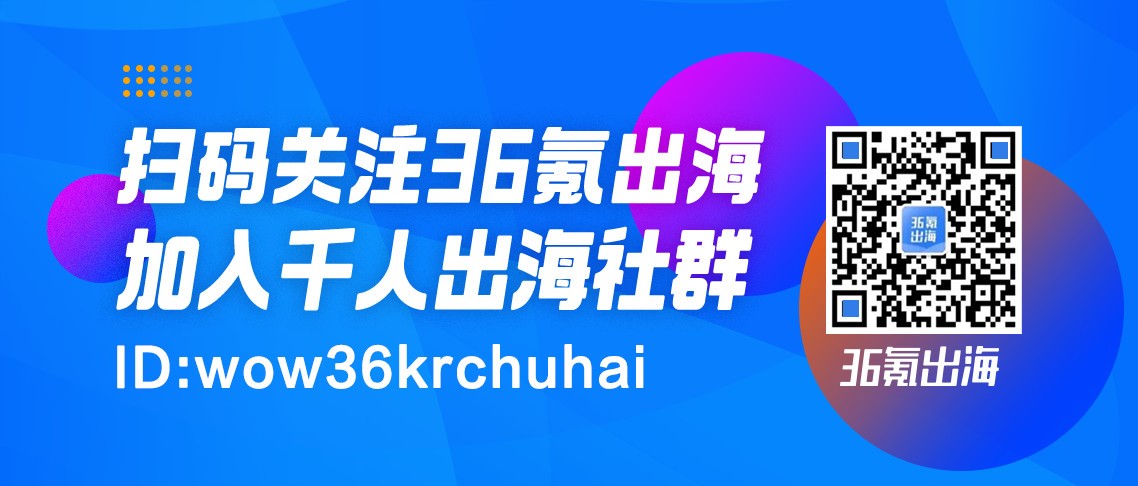Change in the Middle East has just begun, and this is where the greatest potential lies.
Editor’s note: This article is selected from WeChat public account “ ePanda to the Middle East (ID: ePandaMENA) a> “, author: Zhao Yating, authorized reprint.
Fadi Ghandour, executive chairman of Wamda Capital, and founder of Aramex. From 1982 to 2012, he was the CEO of Aramex, leading Aramex to be listed on the NASDAQ in 1997. It was the first company in the Arab world to list in the United States. It was privatized in 2002 and again listed on the Dubai Financial Market (DFM) in 2005. Fadi Ghandour is no longer at Aramex.
For 30 years as CEO of Aramex, Mr. Fadi is also one of the founders of the entire Middle East venture capital ecosystem. He is a founding partner of the Arabic Internet portal Maktoob and was acquired by Yahoo in 2009. He founded Wamda Capital, an investor in nearly a hundred startups such as Careem, Yalla Compare, The Luxury Closet, Mumzworld, and Kharabeesh.
ePanda went to the Middle East and had the honor to visit Mr. Fadi in Dubai and listen to his views on venture capital in the Middle East.
| ePanda goes to the Middle East: Since 2020, the political and economic conditions in the Middle East and North Africa have been unstable, and black swan incidents have been reported. Is it safe to do business in the Middle East?
Fadi Ghandour: I have been doing business here for 38 years, and this question was asked for 38 years. You see, am I okay? I set up my own company, invested in this market, and I’ve always been optimistic.
Of course we don’t want a complicated political background here, but where is it not? I believe that if you go to Southeast Asia or elsewhere. If you want to enter emerging markets, this cannot be escaped.
If you watch the news every day, you will feel too crazy and incredible. But you also live in the Middle East, do you feel these crazy? Do you feel scared when you are walking on the street? Anyway, I don’t think that tragic things happen here every day.
Of course, I do n’t recommend going to Iraq or Syria, but there are GCC (GCC) countries and there are relatively stable markets in Egypt.
AllThe business environment of some emerging markets is very complicated. If I want to do business in China or India, it will be difficult for me. You need to enter this market first and find the way that works for you.
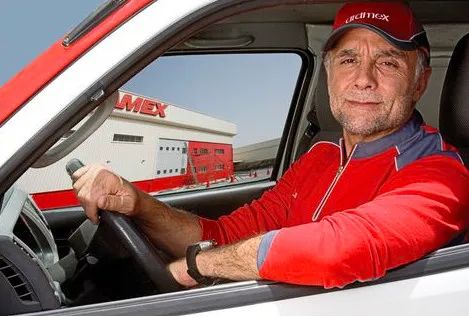
Mr. Fadi has been the CEO of Aramex for 30 years
| ePanda goes to the Middle East: The Middle East is a very important presence, but compared to India and Southeast Asia, the Middle East market does not seem to be large. Over the past few years, many Chinese Internet companies have come here to try, some of them have been very successful, and many have hit their nails. What do you think of the market size and development potential here, do you think there is a clear ceiling in the Middle East?
Fadi Ghandour: Regarding the market size, I think you have to look at it from another angle. If you only go to Dubai or Abu Dhabi, you will feel that this market is small; if you go to Saudi Arabia, you will feel a little bigger, but still smaller than China; but if you add the GCC six countries and Egypt together, A big economy.
If you count Iran and North Africa, the population of this region is more than 400 million, and the economic aggregate ranks fifth or sixth in the global market, which is larger than India and Russia. Therefore, the Middle East is a very promising market.
You mentioned in the question that someone hit a nail here. I don’t know what the specific situation is. It may be a copy of China’s experience. Because the Middle East is also a complex, growing, and early market, you need to invest as early as possible to make long-term gains.
I started Aramex more than thirty years ago and now has operations in every city in the Middle East, but it was difficult at the beginning. I am a Middle Easterner myself. I can say that I know the Middle East market very well, but it took us five or six years to get a little sense of presence in the market, and then it gradually grew bigger.
Of course, it was the 1980s, and it’s much easier now. However, you can’t come here rashly, thinking that doing business here is as simple as doing business in the United States or Europe, you must first understand the different situations in each country.
If you want to make quick money, you will definitely be disappointed. You have to come first, invest in it, show your determination to cultivate here, invest money here, and this market will naturally reward you. Same as other marketsYou cannot get rich the next day after you sleep. It is unrealistic to hold on to the idea of success as soon as you come in. Be prepared to encounter all kinds of difficulties.
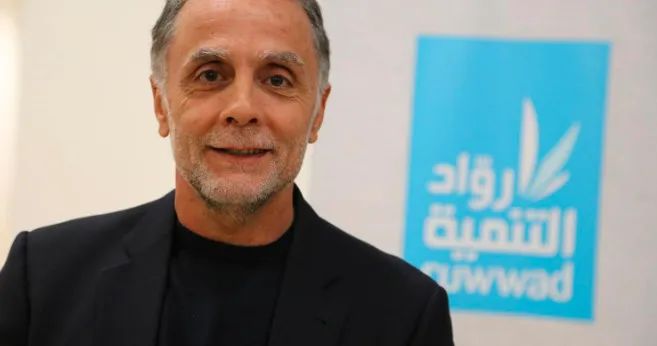
Mr. Fadi is also the founder of Ruwwad, a non-profit community development organization dedicated to addressing inequality throughout the Arab world.
| ePanda goes to the Middle East: Why did you switch to investing after exiting from Aramex? What’s changed in the Middle East startup ecosystem in recent years?
Fadi Ghandour: I personally started investing while I was in Aramex, because I am an entrepreneur and a practitioner, so many entrepreneurs who just started find me and ask me many questions, such as how to enter this market, How to scale up etc. and hope I provide seed funding and I would be happy to help them.
For example, I invested in Maktoob in 1998, and for many years after that, there was only this Internet company in the Middle East. Maktoob was later acquired by Yahoo, and the same team grew Souq.com until it was acquired by Amazon in 2017. This process makes me feel very fulfilled. I am willing to give time, money, and energy to do this.
There are two changes in the startup ecosystem in the Middle East. The first is Yahoo’s acquisition of Maktoob; the second is Uber’s $ 3.1 billion acquisition of Careem. We are now undergoing the second process of change. The acquisition was formally completed in January 2020, so many people will leave Careem to set up new companies, just like Silicon Valley and China.
Fifteen years ago, after Maqtoob was acquired by Yahoo, dozens of new Internet companies were started by former Maqtoob employees. After Careem exits, there will be more startups because the scale of this exit is larger. .
Before, startups in the Middle East were mainly before the A round, but this market is only 7 years old and very young. Seed round, A round companies are just preparing to melt B round. Wait patiently, in the next five years, you will see more companies withdraw and see more companies mergeC round, D round.
Careem has exited because it has achieved scale at a very fast rate, but in the next three to five years, more companies are gradually scaling up. It’s just a matter of time. We need time to grow the company, right?
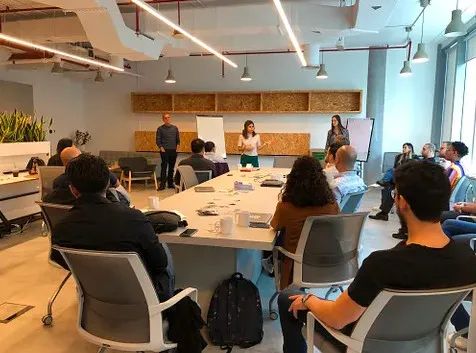
Wamda X project to support budding entrepreneurs and pre-seed startups
| ePanda goes to the Middle East: Careem is currently the most successful startup in the Middle East. You invested in Careem very early. Is there any story behind this?
Fadi Ghandour: The story behind this is that it’s not too early to invest in Careem. The Careem team came to me when I first started. I remember that the valuation was only 6 million US dollars. Unfortunately, some terms were not agreed. When we followed the C round, Careem’s valuation was already $ 150 million.
So, we missed out on a valuation of 6 million. The biggest lesson I learned from this is that very early on, investors didn’t need to think too much. The valuation of 5 million and 6 million is not much different. Don’t be so picky, if you like this company, just vote.
| ePanda goes to the Middle East: What kind of entrepreneurs are you optimistic about in the Middle East?
Fadi Ghandour: Like the rest of the world, there are several elements to successful entrepreneurship in the Middle East: localized products and talents, a leading technical team, an outstanding fundraising team, and the ability to scale. Having these conditions and working hard can produce miracles.
Taking Careem as an example, they follow the model of copying the proven business model of Uber, localizing it according to local conditions, and then scaling it up.
Careem Both founders are from McKinsey’s Middle East office and have a special understanding of the Middle East market. They first developed in Dubai and Abu Dhabi, then broke into Saudi Arabia at a very fast pace. Because Saudi Arabia, Abu Dhabi and Dubai alone account for 40% of the region’s GDP.
Their first partners and investors are local investors who know the Middle East very well, so they can also help Careem very well. So before Uber entered the Middle East, Careem had a solid foothold.
Compared with Uber, Careem’s localization is also better. For example, using Careem can be paid in cash, but Uber was unable to use cash when it first entered the Middle East. In a country that prefers cash, such as the Middle East, this can make Careem more popular.
He didn’t just copy Uber, but quickly adapted to the local market, recruited a large number of local talents, and raised a lot of funds while developing.
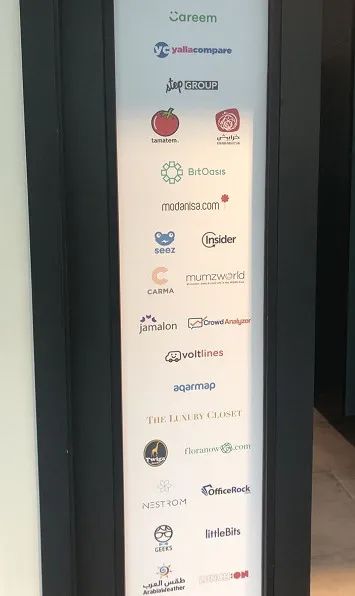
Some startups invested by Wamda
| ePanda goes to the Middle East: The next “Careem”, in which industries will the next unicorn appear? Which areas are you optimistic about?
Fadi Ghandour: There will definitely be companies like Careem in the Middle East, but we have to wait and see and wait for these companies to grow. I am bullish on three areas.
First, food-related companies, including food distribution and food technology. The development of these two fields in the Middle East is very fast and deserves attention. In the field of takeaways, there have been many investments and mergers and acquisitions in the past period.
Delivery hero spent $ 1 billion to acquire five companies within 23 months, including Yemeksepeti in Turkey, Foodonclick in the UAE, Talabat and Carriage based in Kuwait, and HungerStation based in Saudi Arabia. Fast speed has gained an active position in the market.
There are also food technologies, such as Cloud Kitchen. Kitopi, a Dubai-based cloud kitchen startup, just announced in February that it had raised $ 60 million in financing, which is also a large number in the Middle East.
Fintech followed. At present, the banking in the Middle East is still dominated by banks, and we have not seen much competition.Powerful and important fintech company in the market.
So continue to observe, there may be companies like China’s Alipay or WeChat Pay that can solve the Middle East payment problem. What seems impossible today does not mean that tomorrow is still impossible. There may be a super app with enough weight to say what the regulators are willing to listen to and execute, and the central bank may relax restrictions.
The third area I like is travel. Uber and Careem are not enough, there are still great opportunities. China’s Didi Chuxing is now working with Abu Dhabi to enter the Middle East. Startups such as bike sharing and electric scooters have emerged.
So, I don’t know who the next unicorn will be, but I know that they are in the areas of food distribution / food technology, financial technology, and shared mobility.
| ePanda goes to the Middle East: For startups that want to open up markets, except Saudi Arabia and the UAE, where should the next market go?
Fadi Ghandour: I think the next step apart from Saudi Arabia and the UAE is the entire GCC country.
The purchasing power here is very strong, and in my opinion is the most potential place. Here is the higher penetration rate of e-commerce, more online payment methods, and governments are working to improve the business environment. This is a common market. The six Gulf states have created the most synergistic common market in the Middle East.
Kuwait, for example, in the six Gulf countries, is also a very valuable market. Qatar, Bahrain and Oman are smaller. These six countries need to be considered together because they have stable tariffs and the movement of goods and people is very convenient.
But it also depends on the nature of the company. Is an e-commerce company? game company? Fintech company? What is your company’s product? Start a business yourself or buy a company? Make decisions based on your own characteristics.
Acquisition is an easy way. Amazon bought Souq instead of coming here from scratch. It may be a bit expensive to find a team that has solved these complex problems locally, but it is the fastest way to enter this market. But it depends, depending on what your goals are.
In addition to GCC, then you should focus on Egypt and Jordan, which has a large number of talents although it is a small market. Aramex’s headquarters is located in Jordan. Then came Turkey, Pakistan, and Alibaba bought a company in Pakistan. Finally, Africa.
But what I want to say is that if you want to do business in this area, you can first set up an office in Dubai and try it out, because through Dubai, you can know the areaWhat is happening. Moreover, Dubai is also a stepping stone to Africa, and African e-commerce Jumia also has its headquarters in Dubai.
| ePanda goes to the Middle East: What advice do you have for Chinese Internet companies that want to enter the Middle East?
Fadi Ghandour: There are some unstable political and diplomatic factors in the Middle East. If you ignore these, I think it can be compared with China before the change. Change in the Middle East has just begun, and this is where the greatest potential lies.
There are hundreds of startups in the Middle East, and the entire startup ecosystem will change a lot. I believe the Chinese understand this change better. Imagine China before and now, Shenzhen. I just went to Shenzhen a few months ago and the development is incredible.
I welcome Chinese people and Chinese companies to come here because they have very innovative products and good solutions to meet the challenges and problems in this market.
If you make suggestions to Chinese companies, I hope that Chinese companies entering the Middle East market will connect with people in other countries and learn from each other, not just with Chinese companies. Once connected, there are many possibilities for learning.
Edit | Qiu Zehui @ 出海
Picture | Photo courtesy of the author

